-
-
-
-
-
-
-
-
-
-
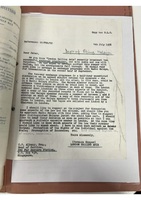
The letter proposes that the broadcast will have a predetermined topic of discussion, with a suggested focus on "Law and the Citizen". Specific topics include Habeas Corpus, "the Rights of the Individual Against the State", and "Presumption of Innocence"
-
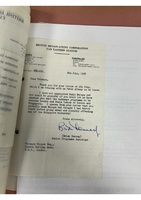
Brian Denney, responding to Terrence Cooper on behalf of Peter Albany (to whom Terrence Cooper's original proposal was addressed), asks for clarification about whether his proposed two way exchange broadcast will be between Kuala Lumpur and London or London and Singapore.
-
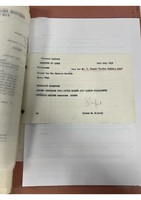
-
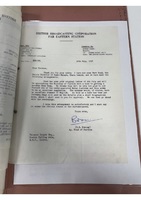
Brian Denney recounts an exchange he had with Bert Read, Radio director of Radio Malaya to Terrence Cooper of BBC London. Bert Read suggests that one of the new Malay Justices could serve as a potential speaker for their broadcast. No name is given as of yet.
-
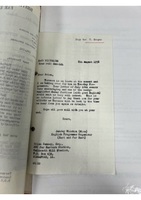
Sunday Wilshin, English Program Organizer for East and Far East Services, responds to Brian Denney on Terrence Cooper's behalf. She lets him know that Terrence Cooper is on leave but encourages him to continue with the proposal outlined in document designated BBC_303
-
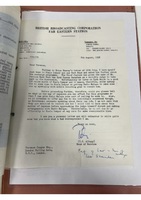
Peter Albany proposes a potential speaker for the London Calling Asia joint broadcast with Radio Malaya; a Chief Justice from Ipoh named Justice Syed Sheh bin Syed Hassan Barakbah. He also inquires into a speaker fee for the contributors as well as potential coverage for expenses.
-
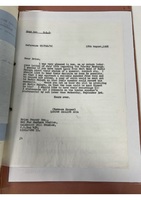
Terrence Cooper writes to Brian Denney, asking who he might be able to send the London speaker's comments to at Radio Malaya. He also sets a deadline of September 3rd, 1958 for the Malaysian speakers comments to be sent to him.
-
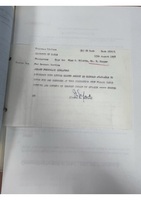
Cable dispatch from Irene Elford stipulating a budget of 25 Guineas to cover expenses
-
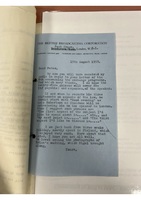
Terence Cooper writes to Peter Albany of BBC Far Eastern Services. He informs Albany about the 25 Guinea budget for fees and expenses that has been allocated for the project. He also suggests some openers for the Radio Malaya contributor.
-
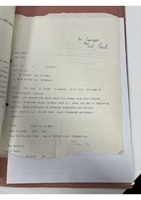
Peter Albany informs Terence Cooper that the Malaysian judge previously tapped to participate in the program has dropped out do to work pressure. He goes on to suggest potential replacements and suggests that the broadcast be delayed as well.
-
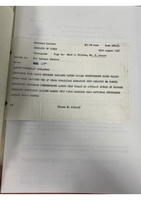
Irene Elford of BBC London urges Peter Albany not to delay the broadcast date, and asks Albany to contact potential replacements as quickly as possible
-
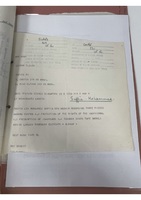
Peter Albany writes to Terence Cooper that a replacement speaker has been secured, LCA Mohammed Suffia Bin Hashim. He also notes the topics he will be covering, and that the tape will arrive at the BBC London offices on the 11th of September 1958
-
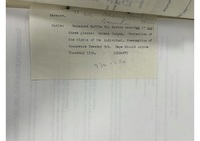
A cable dispatch informing Terence Cooper of the telegraph sent on September 7, 1958 (item designation BBC_311)
-
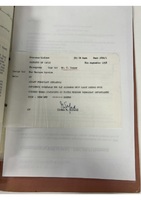
Telegraph noting a potential time and date for Victor Mishcon (the BBC contributor to the project) to record his statements
-
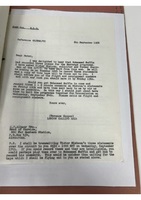
Terence Cooper writes to Peter Albany about his chosen speaker for the BBC London side of the broadcast: Victor Mishcon, solicitor and former chairman of the LCC. He also gives a tentative date of September 19th for the delivery of his comments on tape and requests that Albany arrange for Radio Malaya's responses to be sent by air as soon as possible. He also informs Albany that the recordings will be broadcast over the circuit as an alternative to waiting for the tapes of Mishcon's statements to arrive, allowing for Radio Malaya to record their responses at an earlier date.
-
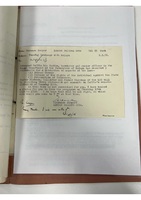
Terence Cooper suggests that the programme be linked on the 18th of September after Radio Malaya records their contributions on the 16th
-
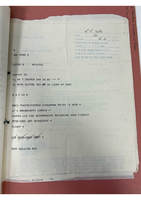
Peter Albany writes to BBC London that they can accommodate recording of the Radio Malaya contribution over circuit
-
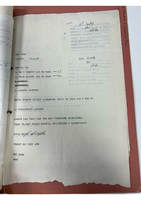
Peter Albany notes via telegram that their recording has been dispatched via air (flight number BA793)
-
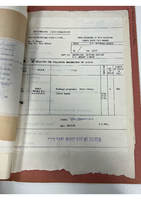
Document confirms receipt and recording of Radio Malaya's tape on September 15, 1958.
-
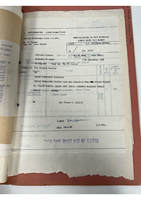
Terence Cooper writes to Peter Albany to let him know that the tape of Mishcon's comments (the BBC London contributor) has been sent and will arrive in Singapore on British Airlines flight 715/18. He also notes that Suffia's responses from Radio Malaya should arrive on Monday at the latest.
-
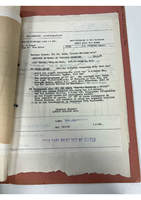
-
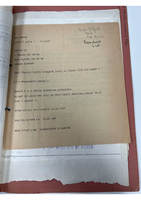
Peter Albany writes to Terence Cooper that Suffia's responses have been recorded and sent to Cooper via flight EM533, with expected arrival in London on September 21, 1958
-
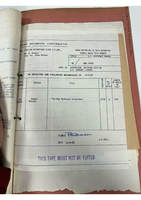
Document confirms receipt and recording of Radio Malaya's tape on September 22, 1958.
-
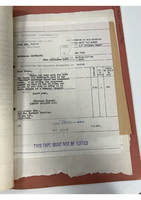
Terence Cooper writes to Peter Albany that the broadcast was successful, and that a copy of the program could be sent to the BBC Far Eastern Service offices for it to be broadcast as a special program.
-
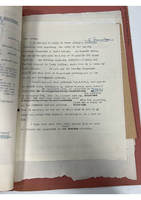
Terence Cooper writes to Brian Denney of BBC Far Eastern Services. He notes that a budget of 20 Guineas has been allocated for expenses. He also notes that because of a delay, Radio Malaya's recording of Mishcon's comments over circuit had failed.
-
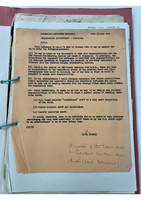
J.B. Clark notes that; a) They were asked by the government to take over responsibilities on Far Eastearn Broadcasting Services now based in Singapore. b) There is no detailed considerations on the date when they will take on the responsibilities nor is there on staffing needs and other arrangements. c) J.B Clark recommends that the circumstances not influence any action they take as the Foreign Office remains the responsible body. d) J.B Clark notes that should they take on any responsibilities, they should consider staffing heads for the UK, contract staff, and local staff.
-
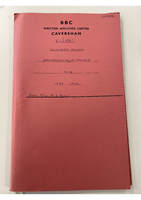
-
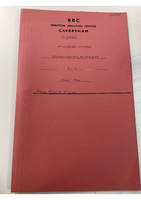
-
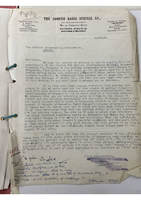
The Borneo Broadcasting Services Co. writes to the BBC regarding the reception in the radio station in preparation for BBC taking on responsibility in the British Far Eastern Broadcasting Service, Singapore, and the possibility of changing broadcasting schedules.
-
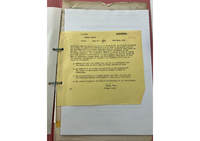
Tangye Lean writes to request for updated listener information on the following subjects: a) Number of short and medium wave sets in the territories b) Estimate of the nature and influence of the audiences c) The possibilities of arranging relays over local stations d) The extent of Russian and Chinese broadcasting in the territories with the purpose of extending service of BBC Far Eastern Services to a few other countries.
-
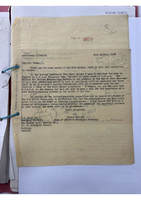
Cyrill Conner notes that; a) It is substantial matter to have additional engineers and staff to do an all-day broadcast for the British Far Eastern Broadcasting Services. b) There is no chance at the present to do the request because of the aforementioned factors.
-
Head of Overseas Programme Services responds to the request to broadcast news mid-day be resumed, and that the there are too many difficulties to bring transmissions. J.B. Clark referred to as D.D.D.S.
-
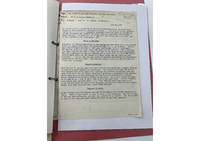
R Benwit reports to BBC Far Eastern Broadcasting Services on Malaya Guerrilla fighters. He notes the following impressions: a) Radio in War Time b) Present Listening c) Interest in Radio d) Knowledge of Standard Chinese e) Present Audience Requirements f) Political Observations
-
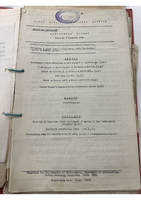
A daily report on listener numbers and general status for Radio Malaya, dated December 8, 1949. The report covers the following topics (9 pages): a) Delegation to Asian Women's Conference in Peking b) Report on Communist China c) Report on Vietnam c)
-
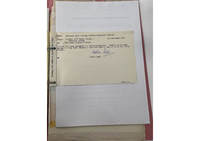
Asher Lee writes a clarification on his previous letter (Item Designation BBC_507) asking the receiver to copy his letter to Peter Albany
-
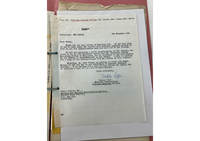
Asher Lee writes to Peter Albany attempting to liaise on audience research. He notes that his office has drafted a questionnaire to distribute at the British Far East Broadcasting Services office in Singapore.
-
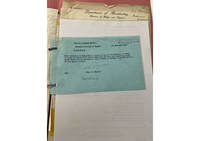
Ivor Thomas opts out of intervening on matters of Audience Research, suggesting that H.W. Jackson be approached for this purpose instead.
-
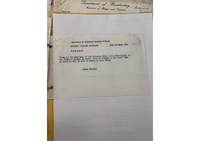
Diana Badder writes to inform HBFEBS that Ivor Thomas is on leave, and will return in two weeks.
-
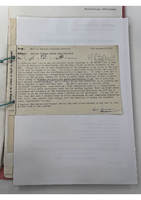
Head of Overseas Programme Services notes that there is a loss of direct listeners of the BBC. It also notes that the loss is most likely due to the listeners switching to Rediffusion Service, which they suspect to be American.
-
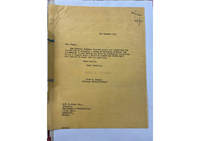
Ivor Thomas writes to coordinate arrangement of a survey of Radio Malaya listeners.
-
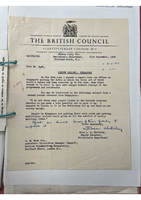
L.D. Whitley relays the content of a letter she received stating that many people do not listen to the British radio as they need a powerful set to pick it up. It also notes that people in Singapore are listening to Rediffusion instead, which mostly broadcasts American items.







































